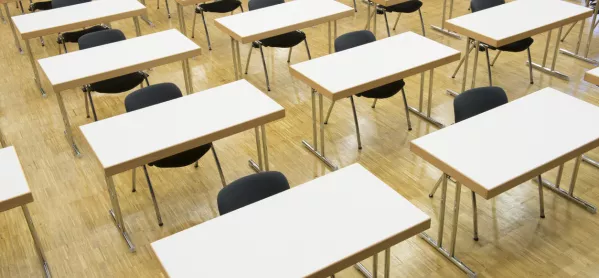The Department of Education has published guidance for schools selected to take the National Reference Test in 2020.
The NRT was introduced in 2017 to give Ofqual additional information about the changing performance of cohorts when awarding GCSEs. Under the system of comparable outcomes, cohorts of similar ability are awarded a broadly consistent spread of grades year on year.
Related: Need to know: the GCSE national reference test
GCSEs 2019: Evidence backing hike in maths grades rejected
Background: Extra exams for 18,000 pupils as the National Reference Test gets the green light
The National Reference Test
What schools can expect for 2020-21:
- The NRT will take place in selected schools between 24 February and 6 March 2020.
- The National Foundation for Educational Research (NFER), which runs the tests under contract from Ofqual, will randomly sample 30 Year 11 students to sit the English test and 30 to sit the maths test. Students will only be selected to take the test if they are entered for the GCSE in that subject.
- All selected students are expected to take part. But headteachers may withdraw pupils in exceptional circumstances.
- One or two representatives from NFER will come to the school to administer the tests. An NFER administrator will telephone the nominated school contact beforehand to arrange the most convenient time of day for the tests.
- Both the English and maths tests last for one hour.
- After the test, students will be asked to complete a short five-minute survey about taking the NRT and their preparation for their GCSE exams.
- The questions in the tests are designed for students working at grades 3 to 7. There are some questions aimed at grades 1 and 2 to make the tests accessible for all students. However, unlike GCSE maths, the NRT maths test is not tiered.
- NFER is responsible for safeguarding the tests’ security, but all teachers or adults present in the test room will need to sign a statement of confidentiality agreeing not to share details of the tests.
- Students with access arrangements will be entitled to similar adjustments for the NRT, such as extra time or having a scribe.
- In recognition of the time and resources needed to take part, each school taking the NRT will receive a cheque for £190. Participating students will be entered into a national draw to win a tablet computer.
- The tests are not designed to measure the performance of individual students, so the NFER will not give feedback on the tests to individual schools.
The NRT was designed to provide evidence on changes in the performance of 16-year-olds in English language and maths in England. Each year, around 350 schools are selected to take the test, with a random sample of 60 pupils selected to sit tests - 30 sitting the NRT in maths, and 30 in English language.
However, in the 2019 GCSEs, Ofqual chose not to use the test results to adjust grade standards in maths and English. The test showed an improvement in maths performance and a decline in English, but Ofqual decided not to make adjustments based on “statistical noise”.





